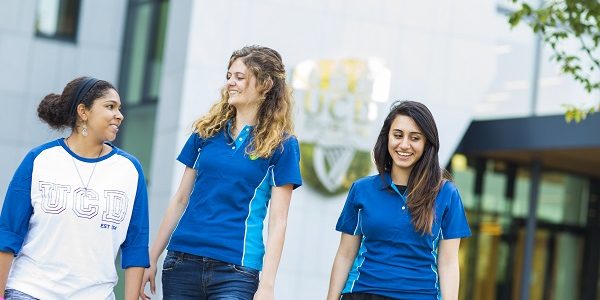Classics (Greek & Roman Civilization, Latin & Greek)
BA (Hons) (NFQ Level 8) OR BSc (Hons) NFQ Level 8)

Course Video
Curricular information is subject to change.
Open AllAs so much of European culture looks back to Classical Antiquity, studying Classics will give you insights not just into the ancient past but also into the ideas and texts that shaped the present. Three subjects are offered within the BA degree, which you can take separately or combine:
- Greek & Roman Civilisation
- Latin
- Greek
Greek & Roman Civilisation explores the Classical World, through history, literature, art, archaeology, mythology and philosophy. You do not need any previous knowledge of the subject, nor will you have to learn the ancient languages.
Latin and Greek allow you to either learn a language from scratch or to develop your existing knowledge. Learn to read works by authors such as Cicero, Homer, Plato, Sophocles and Virgil, in their original languages.
Greek & Roman Civilization
First Year
- Classical Greece
- Age of Augustus
- War and the Hero (Homer and Virgil)
- Lost Cities of the Ancient World.
Second & Final Years
- Alexander and His Successors
- Greek Tragedy
- Greeks, Romans, and Barbarians
- The Athenian Empire
- Classics in Popular Culture
- Death and the Afterlife in the Ancient World
- The Comedies of Aristophanes
- Eating and Drinking in Antiquity
- Family Life in Ancient Greece
- Magic in the Ancient World.
There is also the opportunity at the end of first or second year to go to Greece on a 10-day study tour of archaeological sites and museums, such as Olympia, Delphi, Mycenae and the Acropolis Museum in Athens.
Latin
You can undertake Latin in first year as a beginner. Students who studied Latin at Leaving Cert (or equivalent) can develop their knowledge through modules on language, literature and culture. Authors studied include Virgil, Cicero, Tacitus and Catullus.
Greek
We offer a language programme for beginners leading to the study of authors such as Homer, Plato, Lysias, Sophocles, Thucydides and Euripides.
Students will attend lectures and tutorials as well as undertaking independent reading and study. Some modules are taught in small classes. Assessment is through a mix of class tests, exams, coursework essays, learning journals and group work.
| Studying Greek & Roman Civilisation |
|---|
as a Joint Major with one of the subjects below:
| Studying Greek & Roman Civilisation as a minor with: |
|---|
| Archaeology | Geography |
UCD School of Classics has links with the Universities of Athens, Brno, Catania, Cyprus, Erlangen and Stuttgart. Non-EU exchange opportunities include the University of Melbourne, Australia and the University of Virginia, USA.
KEY FACT
The Classical Museum at UCD holds the largest collection of Greek and Roman artefacts on display in Ireland. Students taking relevant modules have the opportunity for hands-on interaction with the collection.
Our graduates have highly-valued skills, including research, data analysis, presentation and critical reasoning. Graduates pursue a wide range of careers, such as: Advertising, Broadcasting, Journalism, Teaching, IT, Law, Business, Speech-writing and Advocacy.
You can continue your study of the ancient world at UCD, with a taught MA in Classics and a research degree – MLitt or PhD. For details, see www.ucd.ie/classics/study.
“The legacy of the classical world permeates our own and, particularly in my case, contemporary pop culture. The Greek myths were in all my favourite books and the Roman Empire was the setting for some of my favourite films. In the realworld, Neo-Classical architecture fills the streets of cities such as Dublin. Anyone with a modicum of interest should study it, particularly at UCD, I have only had great interactions with the staff that make up the school of Classics. The in-depth study of these ancient cultures has also shifted much of my day-to-day thinking. The subject is not only a study of the lives of the people of the Mediterranean, but how their lives and cultures affect us today.”
Leo Murtagh, Student
UCD School of Classics
Newman,
Belfield,
Dublin 4
Tel: +353 1 716 8166
Email: tasneem.filaih@ucd.ie


